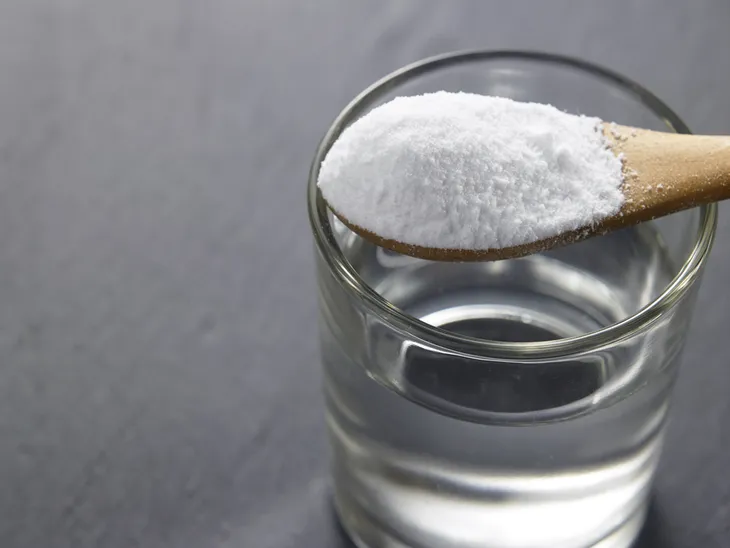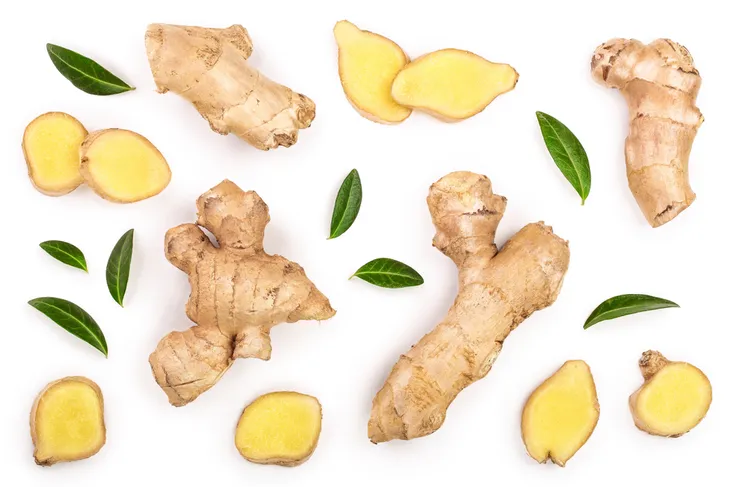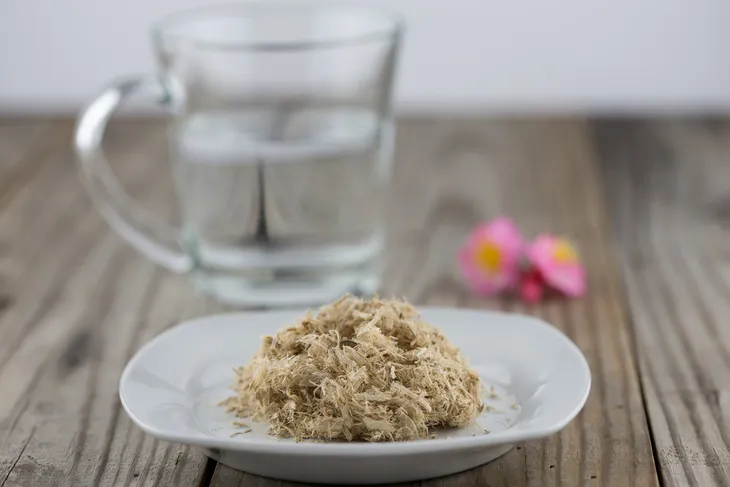Acid reflux happens when the lower esophageal sphincter (a muscle ring that allows food into the stomach) doesn’t seal and close off your esophagus from the stomach. This causes stomach acid to flow back into the esophagus. When this happens, the acid reflux can irritate the lining of your esophagus causing a burning sensation in your chest which can be quite uncomfortable and painful.
Acid reflux can happen to anyone, and many people experience it from time to time. That said, if you’re experiencing acid reflux at least twice a week, this might indicate that you have gastroesophageal reflux disease, also known as GERD. The good news is there are a variety of effective home remedies for acid reflux that can help you get some relief. Here are 12 at-home remedies you can try.
Drink Herbal Tea
If you’re experiencing acid reflux then try drinking a non-caffeinated herbal tea. Some herbal teas may help improve digestion, gas, nausea, and acid reflux.
Just be sure to steer clear of spearmint or peppermint teas because mint is a common trigger ingredient for acid reflux. Chamomile tea is a great option. It’s renowned for its calming properties, can help fight inflammation, and may help balance acidity levels in your stomach.
Baking Soda
Did you know baking soda can help treat acid reflux? This is because it contains an ingredient called sodium bicarbonate. The ingredient works by neutralizing stomach acid and in turn, temporarily relieves the symptoms of acid reflux.
To reap the benefits of baking soda, you can mix a teaspoon of baking soda with a cup of water and drink it. But here’s the catch. Baking soda may only provide temporary relief. This remedy is meant to be used for short-term relief and not as a long-term treatment. You should also speak with your doctor if you’re unsure about the dosage.
Avoid Trigger Foods
A great way to help prevent acid reflux is to avoid trigger foods. Certain foods can trigger acid reflux and when you limit or avoid these foods altogether, you may be able to keep the acid reflux at bay.
Some common trigger foods include citrus fruits, soda, caffeine, garlic, onions, fried foods, and alcohol. The best way to figure out which foods trigger your acid reflux is to keep a food journal. This way you’ll be able to pick up on any patterns and determine which foods you should avoid or limit.
Apple Cider Vinegar
You can also try using apple cider vinegar (AVC) to help treat your acid reflux symptoms at home. While there is no concrete evidence this method will work, some believe this home remedy will help balance your stomach pH by neutralizing stomach acid.
Apple cider vinegar is quite strong, so when using this remedy, mix about a tablespoon of apple cider vinegar with a glass of water. If you still find the mixture unpalatable, you can try adding honey. You may also want to consider drinking this mixture before meals to help alleviate the symptoms of acid reflux.
Ginger
Ginger is renowned for its medicinal benefits. For starters, it is a powerful antioxidant and has anti-inflammatory properties. It may also help with digestion.
Further, the phenolic compounds found in ginger may help relieve gastrointestinal irritation, and lessen gastric contractions. This may prevent acid from flowing back into your esophagus.
To reap the benefits of raw ginger, you can peel it and then grate it, dice it, or slice it. Ginger can be used in cooking but can also be eaten raw or steeped in water to make tea. Just remember, to consume ginger in moderation — about four grams per day. Too much ginger could have adverse effects and actually make your symptoms worse.
Slippery Elm
Slippery elm is a naturally derived supplement that comes from a tree native to the central and eastern United States and Ontario, Canada. The supplement can coat your esophagus and stomach which may help relieve the discomfort caused by acid reflux.
Slippery elm is available in a few different forms from capsules and powder to lozenges. When using the powder, mix one tablespoon with water or tea. You can drink this mixture up to three times per day. Some people also mix in sugar or honey to make it more palatable.
When taking capsules, most people take 400 to 500-milligram capsules up to three times per day. Just be sure you don’t use this supplement for more than eight weeks. If you’re unsure about how much you should take, speak with your doctor.
Wear Loose Clothing
There’s nothing wrong with wearing tight clothing unless you suffer from acid reflux. Tight clothing can put pressure on the stomach, and in some cases, force acid up into the esophagus.
This remedy is simple. If you suffer from acid reflux, wear loose clothing. Avoid fastening your belt too tightly and instead, choose to wear stretchy, comfortable clothing that doesn’t constrict. This will also help promote proper digestion.
Chew a Piece of Gum
Did you know there are several health benefits of chewing gum? It may improve concentration, memory, reaction time, and may even help with acid reflux. This is because when you chew gum, you’re increasing your saliva production which in turn, will cause you to swallow more. This can help any acidity in your mouth to clear quickly.
Furthermore, if you’re able to find gum with bicarbonate, you may get even more relief. Bicarbonate can help neutralize the acid in your esophagus. While your saliva already contains bicarbonate, chewing gum with it will intensify its neutralizing effects.
A quick tip: make sure you choose sugar-free gum for dental health.
Improve Your Posture
Good posture is important for everyone, but especially if you have acid reflux. This is because poor posture can disrupt the normal function of your organs. This can slow down the transit of food and can put pressure on your stomach which may cause your stomach acid to push upward.
To help ease the symptoms of acid reflux make sure you maintain proper posture while eating and after eating. To achieve good posture, sit (or stand) up tall, keep your shoulders back and pull your stomach in, and keep your head level.
If you’re not used to having good posture it might feel odd at first, but once you make it a habit to maintain good posture throughout the day, it’ll begin to feel more natural.
Drink Aloe Vera Juice
Aloe vera is often used as a home remedy for minor scrapes and burns. But it may also help relieve discomfort caused by acid reflux. Aloe juice is derived from the inner lining of the plant’s leaves and is known to have anti-inflammatory properties. It’s also chock full of vitamins and minerals.
Aloe vera may help acid reflux because it acts as an anti-inflammatory agent and it may also reduce acid production. While aloe vera juice is generally safe for most people, people with diabetes, women who are pregnant, or people who are taking laxatives or diuretics should not drink it. Make sure you consult your doctor if you are unsure.
Quit Smoking
It’s no secret that smoking is bad for your health. But, smoking could be making your acid reflux worse.
Healthline explains, “Smoking damages the lower esophageal sphincter (LES), which is responsible for preventing stomach acids from backing up.” When the muscles are weakened, you may experience more acid reflux. So if you suffer from acid reflux and you smoke, it’s time to quit.
Relax
Another simple, yet effective home remedy for acid reflux is to relax more often. Relaxing your mind and body may help your esophageal muscles work as they should and in turn help keep stomach acid down.
Some great ways to relax include practicing meditation or taking deep breaths for a few minutes several times per day. You may also benefit from yoga. Find what relaxes you the most and try to repeat it several times per day to help prevent acid reflux.















